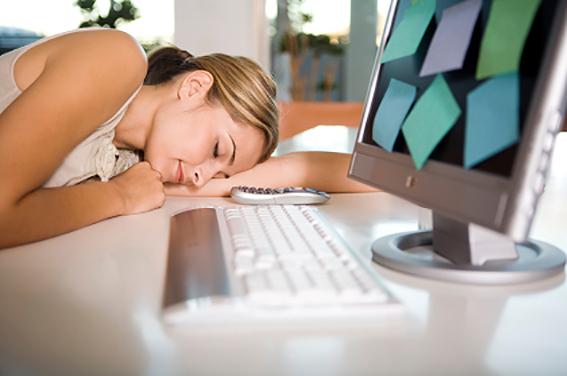Why do we get tired in the day?
updated the 13 June 2014 à 23:16Here is our advice on how to sustain all your energy resources throughout the day to avoid rapid burnout.
Being flat out three to four hours after eating is a mark of hypoglycaemia (low blood sugar). Chromium deficiency or cortisol may be involved.
The mechanisms involved.
Chromium is an element that increases the sensitivity of cells to insulin, the hormone which governs our energy reserves. In case of deficiency, sugar from the previous meal hardly penetrates into the cells. The neurons and muscle cells are as a result fuel deprived, resulting in recurrent physical and mental fatigue. Known as the “stress hormone”, cortisol increases blood sugar for the body to function at full capacity. In between meals, cortisol deficiency induces a slowing of brain and muscle activity.
How do we remedy it?
Go easy on refined flours and sugars, as excessive consumption reduces the levels of chromium in the body. Integrate more green beans, mushrooms, eggs and yeast to the menu as well. There are also multivitamins enriched with chromium, which you can take at a recommended daily dose of 600 to 1200 micrograms, though patients with hepatic or renal disease should exercise caution.
A cortisol deficiency can be detected by a blood test. Hormone therapy (20-30 mg/day) is recommended. Tweaking little things to your lifestyle also helps – for example, take frequent snacks to avoid hypoglycaemia, avoid sweets, alcohol and cereals which make insulin fluctuate, and expose yourself regularly sunlight to increase your hormone levels by up to 50%.
Thierry Souccar
Read more from our Fatigue series:
Morning fatigue: Causes and solutions
How do we regain energy during the day?
How to reduce listlessness at night?




